The following test screening results from Criterion's website suggest that audiences weren’t quite ready for David Cronenberg’s betamax odyssey in 1983:
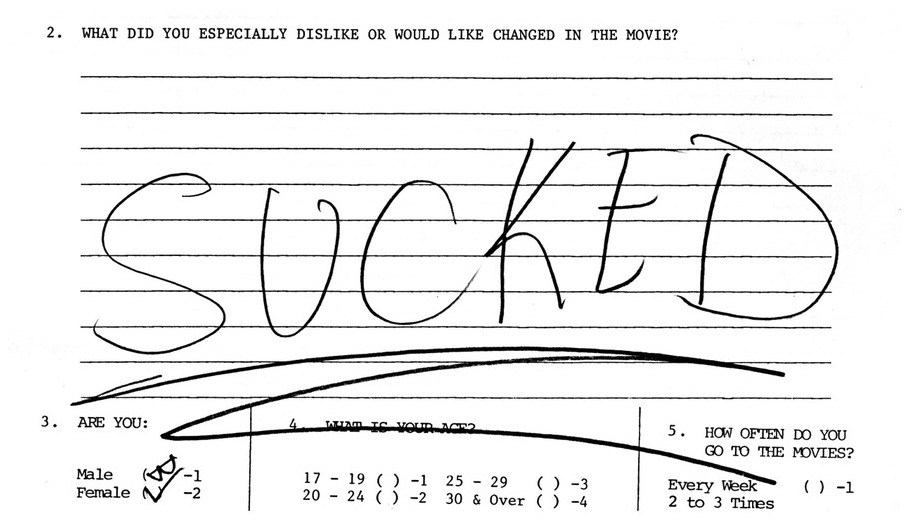
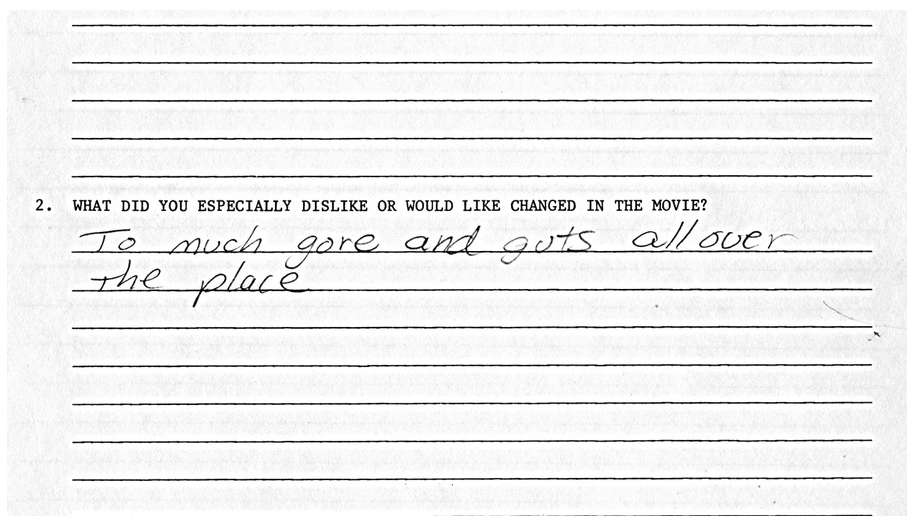
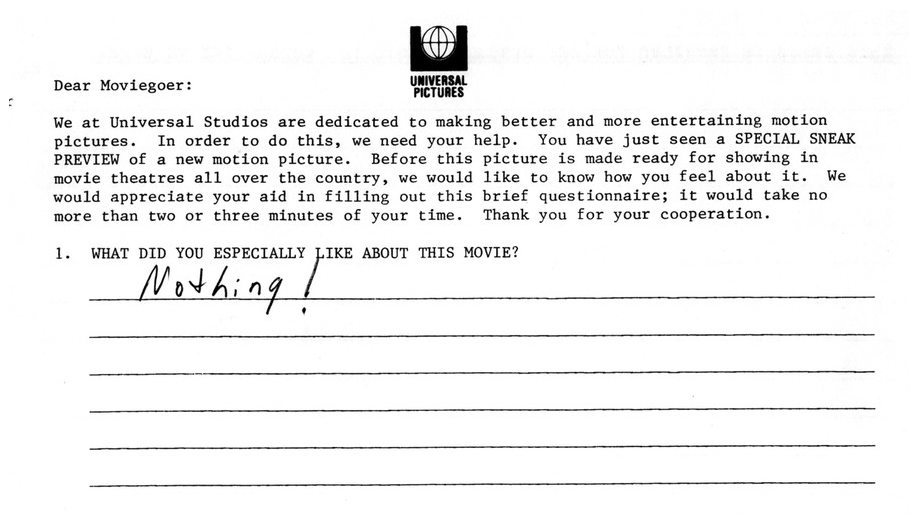
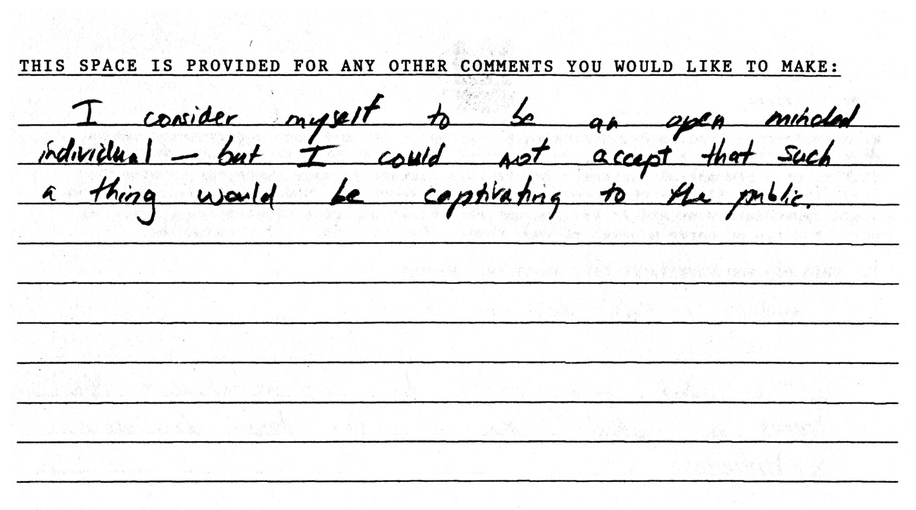
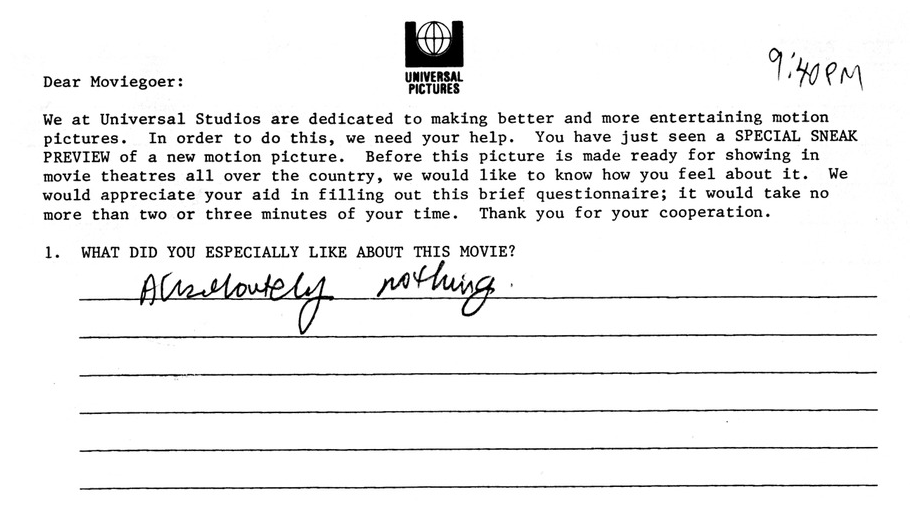
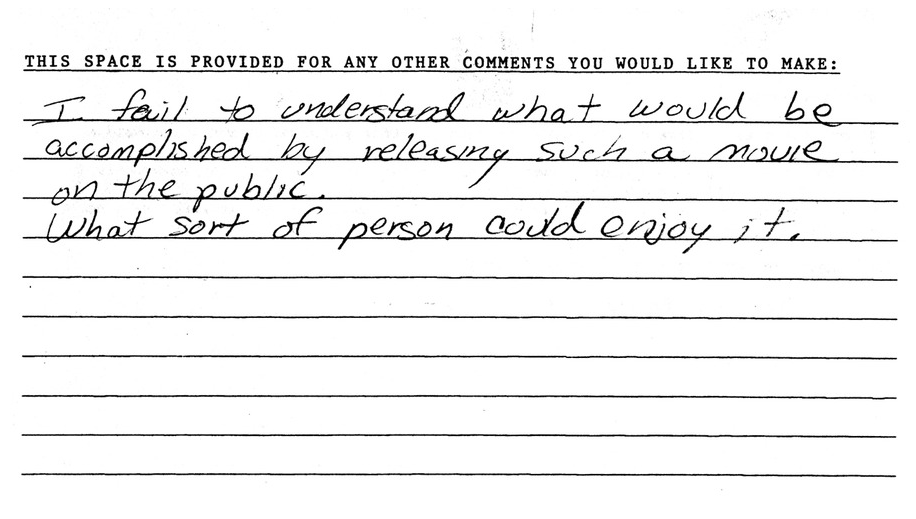
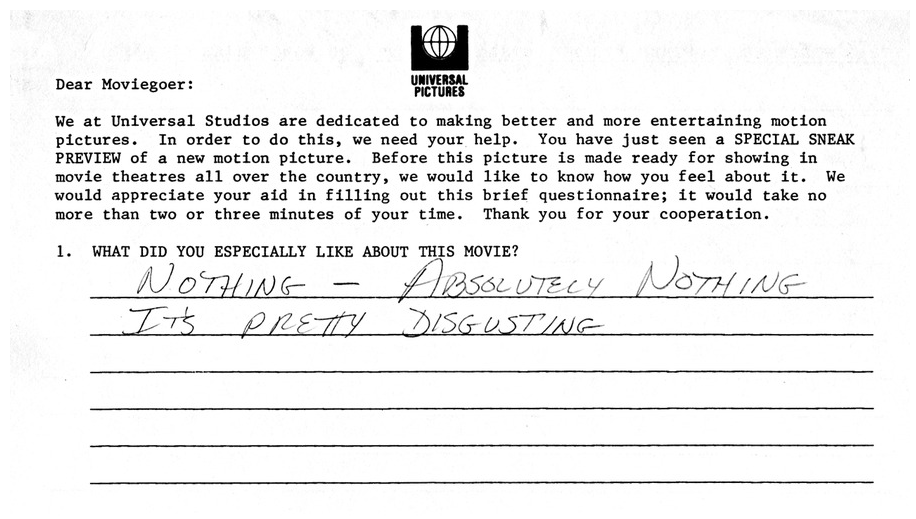

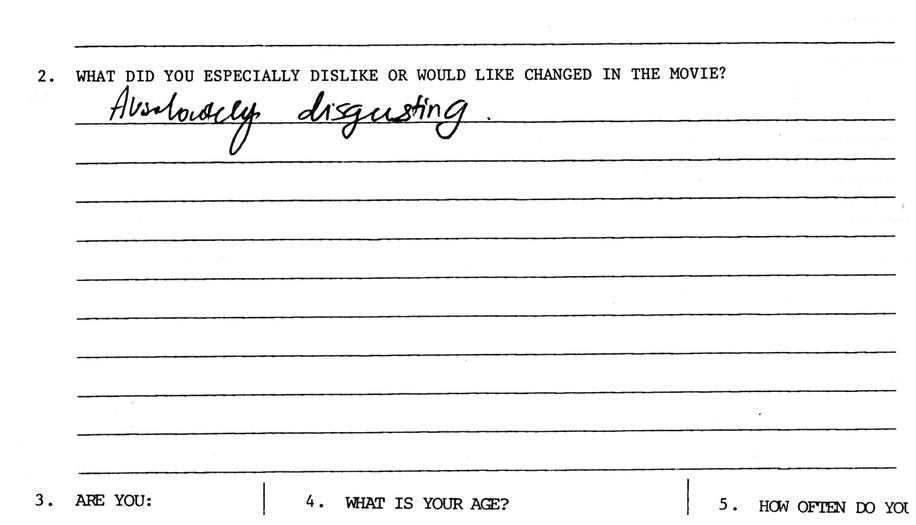
One of the featured film essays on that same page - Medium Cruel Reflections on Videodrome by Tim Lucas - mentions an interesting visual component that was present in the script but didn’t make it into the final film: video twitches. After using the Accumicon helmet, Max was to shake “video dandruff” from his head. People and objects were to twitch video throughout the story, to be achieved by dropping the resolution down to 525-lines with an electric neon-like effect:
[Michael] Lennick and his associate Lee Wilson prepared a reel of assorted video twitches and glitches for Cronenberg — “Everything from a basic white-noise glitch to complex little flashes with flecks of subliminal material in them,” Lennick says — which he did like. “It wasn’t the quality of their effects, per se,” Cronenberg explains, “but I didn’t have to see the actual twitches in context to know that they would have disrupted the film’s pacing. They didn’t gel with the surrounding footage — that’s the main reason they were cut. Michael was very disappointed, but it wouldn’t be true to portray this as him and me being destroyed by budget restrictions. I’ve not regretted their loss either.
Their omission no doubt makes the film feel a lot less dated when viewed today. But it’s a shame that this test reel didn’t survive in some form, just to view what might have been.
One special feature present on the Criterion Blu-ray that’s a must watch is Fear On Film, a 26 minute round table discussion between Cronenberg, John Carpenter and John Landis that’s hosted by future filmmaker Mick Garris. This was in 1982 when all three were at the top of their game. Youtube has the piece in 2 parts.
Long live the new flesh.
